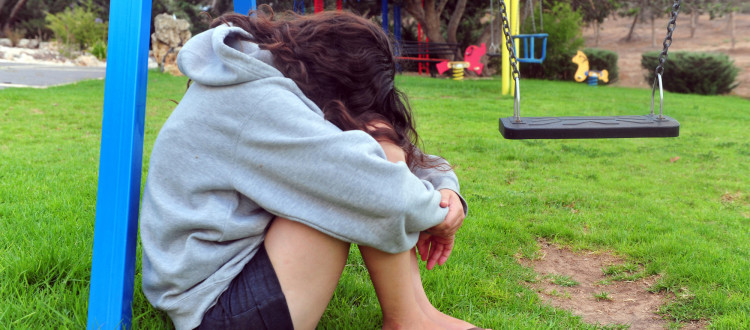Boynton Beach Personal Injury Attorneys Will Assist Victims of Sexual Assault
Civil Lawsuits Seeking Monetary Damages Filed Against Preschool in Child Molestation Cases
Next month a Broward County judge is scheduled to hear a 2013 lawsuit filed by the parents of a then 4 year old girl, who reported she was sexually molested by her music teacher during nap time at her preschool day care center. The Third Amended Complaint seeks compensatory and punitive damages against three defendants; Discovery Preschool Center in Coconut Creek, Kidstop at Boynton Beach (d/b/a/ Discovery Preschool Centers), and Bright Horizons Family Solutions, the school’s owner.
The lawsuit alleges negligence in multiple counts, as well as vicarious liability, a cause of action based on “respondeat superior” (liability stemming from the employment relationship between the defendants and the abusive pedophile employee acting in the course and scope of his work duties). There are two other lawsuits filed against the same defendants by other children who attended Discovery Preschool. Those plaintiffs also claim the defendants are “responsible for the negligent, reckless and intentional actions of its servant (employee), committed in the actual or apparent scope of his duties.”
If you have been the victim of sexual abuse or if a child you know has been sexually assaulted as a result of negligent supervision or care, call an experienced Boynton Beach Sexual Abuse attorney at Boynton Law, P.A. to discuss your right or the child’s right to compensation.
Rape and sexual assault victims are filing increasing numbers of civil lawsuits against their perpetrators and/or against other people or entities, such as the employer of the perpetrator, their landlord, a school, or a child’s daycare center, as this third party may be legally responsible for the plaintiff being victimized in the first place. The third party is typically sued under a negligence theory. Negligence is generally defined as failing to use reasonable care – not using that level of care that a reasonable person would use in the same or similar circumstances. Failure to use “reasonable” care, although unintentional, is wrongful conduct when it causes injury to another.
With respect to a rape or sexual assault victim, in the case of a defendant-employer, the victim alleges that the employer was negligent in hiring, retaining, or supervising the tortfeasor/perpetrator. In the case of the defendant-landlord, the facts may involve the landlord’s failure to take reasonable security precautions, such as fixing a broken lock on an entrance door or gate or failing to inspect the common premises for burned out light bulbs. If for example, these instances allowed a tortfeasor to gain access to the property and have contact to sexually molest a child, the victims have the legal right to seek compensation and file a personal injury case – not only against the perpetrator, but against the negligent third party.
In 2011, an Applied Research paper entitled, “Civil Tort Actions Filed by Victims of Sexual Assault: Promise and Perils,” authored by Ellen Bublick, J.D., for the National Online Resource Center on Violence Against Women (VAWnet.org), reported a 1000% increase in the number of state supreme court decisions issuing opinions in rape and sexual assault cases between 1970 and 2000. Although there are no definitive statistics on the number of civil lawsuits filed specifically by sexual assault victims in this 30 year period, given the fact that only 3% of all civil cases reach the appellate level (as 97% of all civil lawsuits are settled before trial), it is self evident that the number of tort cases filed by sexual assault victims in the trial courts has dramatically risen – otherwise there would not be this huge increase in the number of court opinions issued.
In 2010, the Florida legislature passed a bill removing the statute of limitations for victims of child sexual abuse, basically allowing them to file a civil lawsuit at anytime. A statute of limitations is a law that limits the amount of time a person has to file a particular type of lawsuit. Generally speaking, most negligence related causes of action must be filed within 4 years from the date the injury occurs. There are exceptions to this general rule, but a fuller discussion of them is outside the parameters of this article (and a good reason to always contact an experienced Palm Beach Sexual Abuse Lawyer if you or a loved one is injured due to the negligence of others).
Prior to 2010, the statute of limitations for a sexual battery case, with a few exceptions, required the plaintiff to file the civil lawsuit before his or her 22nd birthday. Under the new law, the statute of limitations for a civil action involving child sexual battery was amended, and now states that there is no time limitation when the victim was under the age of 16 at the time of the offense. The new law is only applicable if the civil action would not have otherwise been time barred on or before July 1, 2010. In other words, if a 4 year old child was a victim of sexual battery (as defined by law) in 2006 at a church, preschool or child care center, that person has no deadline within which file his or her civil lawsuit. Under the current Florida law, the cause of action will never be time-barred and the potential exposure for liability of the perpetrator or a thirty party will never expire.
If you have questions about the applicable Florida statute of limitations in sexual abuse cases or about any of the topics referenced in this article, call an experienced Boynton Beach personal injury attorney at Boynton Law, P.A. for a free consultation.

